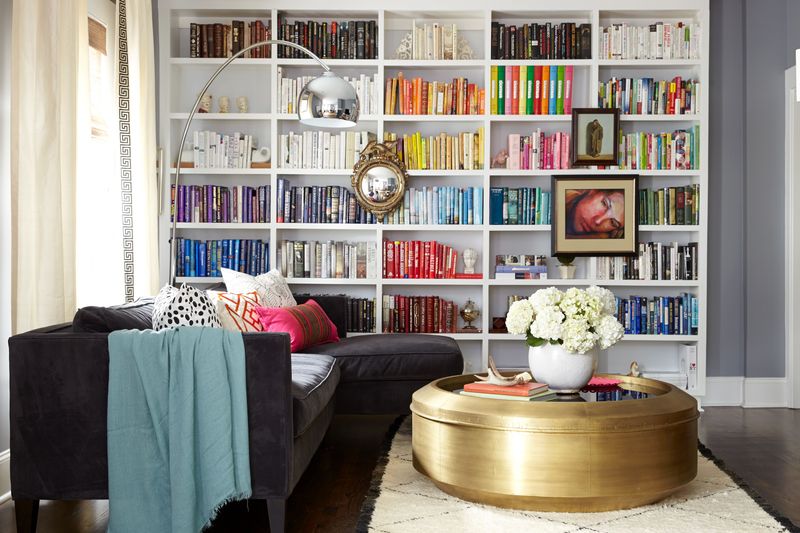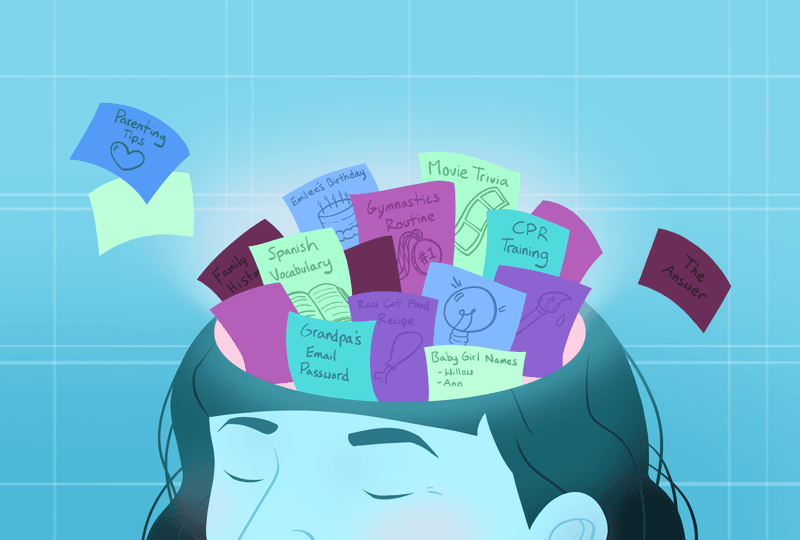Why Every Home Needs A Reading Room That Sparks Inspiration
Books have this wild ability to pull me into other worlds, but I’ve learned that where I read them totally changes the vibe. For years, I’d curl up in random corners, balancing a book and a coffee on the arm of a couch. It worked… kinda.
But once I carved out a cozy little reading nook just for me, everything shifted. Now, it’s my personal escape pod, quiet, comfortable, and distraction-free.
Whether I’m diving into fantasy or flipping through nonfiction, having that dedicated space makes every story feel richer and more immersive. Honestly, it’s one of the best things I’ve done for myself.
1. Your Brain Gets A Productivity Boost

Scientists have discovered that reading in a consistent, comfortable environment actually improves your brain’s ability to focus and remember information. When your mind associates a specific space with learning, it automatically switches into study mode.
Think of it like training a puppy to sit in their favorite spot. Your brain learns to concentrate better when it recognizes the reading signals around you.
Plus, having all your books and supplies organized in one place means less time searching and more time absorbing those fascinating stories and facts.
2. Escape From Digital Distractions Becomes Possible

How many times have you tried reading while your phone buzzes with notifications every few minutes? Creating a device-free reading zone helps you disconnect from the constant ping of social media and messages.
Without screens competing for your attention, your eyes can rest and your mind can fully engage with the words on the page.
Many families establish their reading rooms as phone-free zones, creating a peaceful bubble where imagination can flourish without digital interruptions.
3. Better Sleep Patterns Develop Naturally

Reading physical books before bedtime helps signal to your body that it’s time to wind down and prepare for sleep. Unlike screens that emit blue light and keep your brain alert, paper pages create a calming ritual.
When you establish a regular reading routine in your special space, your internal clock starts recognizing these cues for relaxation.
Most sleep experts recommend reading for 15-30 minutes before bed, and having a dedicated spot makes this healthy habit much easier to maintain consistently.
4. Family Bonding Time Gets More Meaningful

Sometimes the best conversations happen when families read together in the same cozy space, even if everyone has different books. Children naturally want to copy what their parents do, so seeing adults enjoy reading encourages kids to pick up books too.
Reading rooms become gathering spots where family members can share favorite passages, recommend stories, or simply enjoy quiet time together.
These shared reading experiences create lasting memories and strengthen relationships through the simple act of being present with each other and good books.
5. Stress Levels Drop Significantly

Research shows that reading for just six minutes can reduce stress levels by up to 68 percent, which is more effective than listening to music or drinking tea. Having a designated reading space makes it easier to access this natural stress relief whenever you need it.
Your reading room becomes like a mini vacation spot where you can escape from work pressures, school deadlines, or family responsibilities.
When life gets overwhelming, knowing you have a peaceful retreat just steps away provides comfort and helps you recharge your emotional batteries.
6. Creativity And Imagination Expand Dramatically

Exposure to different stories, ideas, and writing styles naturally feeds your creative thinking and problem-solving abilities. When you have easy access to various books in your reading space, you’re more likely to explore new genres and perspectives.
Many writers and artists credit their reading habits with sparking their most innovative ideas and projects.
Your reading room becomes an idea laboratory where fictional adventures and factual discoveries blend together, creating fertile ground for your own creative expressions and original thinking.
7. Vocabulary Skills Improve Without Effort

Regular reading naturally exposes you to thousands of new words in context, which is far more effective than memorizing vocabulary lists. When you encounter unfamiliar words while reading for pleasure, your brain absorbs their meanings more easily.
Having reference books like dictionaries and thesauruses nearby in your reading space encourages you to look up interesting words immediately.
Over time, this effortless vocabulary building improves your speaking, writing, and comprehension skills without feeling like tedious homework or boring study sessions.
8. Personal Reflection Time Becomes Sacred

Books often prompt us to think deeply about our own lives, values, and experiences, but we need quiet space to process these thoughts properly. Your reading room provides the perfect environment for this kind of meaningful self-reflection.
Whether you’re reading philosophy, memoirs, or fiction that resonates with your experiences, having a peaceful space helps you connect the dots between what you read and your personal journey.
Many people keep journals in their reading rooms to capture insights and thoughts that emerge during their reading sessions.
9. Reading Speed And Comprehension Increase

Consistent reading in the same comfortable environment helps your brain develop better reading habits and processing skills. When external distractions are minimized, you can focus more energy on understanding and retaining information.
Good lighting, comfortable seating, and proper book positioning in your reading space reduce eye strain and physical discomfort that can slow down reading.
Over time, regular practice in your optimized reading environment naturally improves both how quickly you read and how well you understand complex material.
10. Book Collection Organization Makes Sense

Having a central location for your books makes it much easier to keep track of what you own and find specific titles when you want to reread them. No more buying duplicate copies because you forgot you already had a book somewhere.
Organized bookshelves also help you discover forgotten gems in your collection and make better decisions about which books to read next.
When friends visit your reading room, they can easily browse your collection and borrow books, creating opportunities for literary discussions and recommendations.
11. Weather Independence For Reading Pleasure

Rain, snow, extreme heat, or freezing temperatures can’t interfere with your reading plans when you have a comfortable indoor reading space. While outdoor reading can be lovely, weather often limits when and where you can enjoy books.
Your reading room provides consistent comfort year-round, with controlled temperature, lighting, and seating that outdoor locations can’t match.
Whether it’s a stormy winter evening or a sweltering summer afternoon, your reading sanctuary remains the perfect escape regardless of what Mother Nature has planned.
12. Mental Health Benefits Accumulate Over Time

Regular reading has been shown to reduce symptoms of depression and anxiety while improving overall mental well-being. Having a dedicated space makes it easier to maintain this beneficial habit consistently.
Your reading room becomes a form of bibliotherapy, where books provide emotional support, new perspectives, and coping strategies for life’s challenges.
Mental health professionals often recommend reading as a complementary tool for emotional healing, and having a peaceful space dedicated to this activity maximizes its therapeutic benefits.
13. Academic Performance Shows Improvement

Students who read regularly outside of required schoolwork typically perform better across all subjects because reading strengthens critical thinking, analysis, and communication skills. A home reading space encourages this beneficial habit.
When homework gets challenging, having immediate access to reference books, dictionaries, and supplementary reading materials in your reading room provides valuable support.
Teachers consistently report that students who read for pleasure at home demonstrate better writing skills, broader knowledge, and improved test performance compared to their non-reading peers.
14. Cultural Knowledge Expands Naturally

Books transport us to different countries, time periods, and cultural experiences without requiring expensive travel or special arrangements. Your reading room becomes a passport to understanding diverse perspectives and traditions.
When you have easy access to literature from various cultures and authors, you naturally develop empathy, tolerance, and appreciation for human diversity.
This cultural literacy gained through reading helps you become a more informed citizen and interesting conversationalist who can connect with people from many different backgrounds.
15. Long-term Memory Formation Strengthens

Reading engaging stories and information in a consistent, comfortable environment helps your brain form stronger, longer-lasting memories. The physical act of turning pages and the sensory experience of your reading space create multiple memory pathways.
When you associate specific books with your special reading location, you’re more likely to remember plot details, character names, and important information years later.
Many avid readers can recall exactly where they were sitting when they read their favorite passages, demonstrating how environmental context enhances memory formation.







